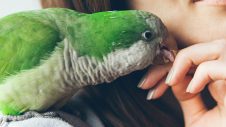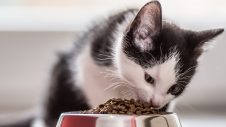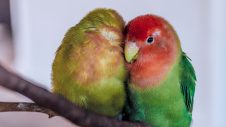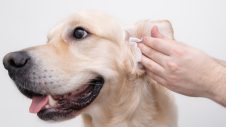Birds can make wonderful pets, but like any living animal, knowing how to take care of them is essential. For your pet bird to be a happy, healthy part of your family, it is essential they receive the best care. From entertainment, feeding and even healthcare, let us take you through the basics of keeping pet birds.
Housing your Pet Bird
Ensuring your bird has a comfortable home and is adjusted to their surroundings is another key factor in keeping them happy. There are several aspects of a birds housing to keep in mind when creating a space for them. Every species will vary in their preference but as a rule of thumb, the more space you can give them in their enclosure, the better.
Pet Bird Enclosure Size
Starting with the basics, it is important to consider the height and width of the enclosure with respect to the living habits of your pet bird. For example, perching birds require enough height, width and space to be able to comfortably fly around and in this case an aviary would be a suitable choice.
Parrots on the other hand tend to be climbers, which means a tall enclosure with multiple perches would be their ideal enclosure environment, so they have both room to explore and survey their surroundings. In the case of flying parrots, it is again important that they have room to spread their wings (literally in this case) to roam around whether in their enclosure or safe areas of your home.
Pet Bird Enclosure Materials
Starting with the basics, it is important to consider the height and width of the enclosure with respect to the living habits of your pet bird. For example, perching birds require enough height, width and space to be able to comfortably fly around and in this case an aviary would be a suitable choice.
Parrots on the other hand tend to be climbers, which means a tall enclosure with multiple perches would be their ideal enclosure environment, so they have both room to explore and survey their surroundings. In the case of flying parrots, it is again important that they have room to spread their wings (literally in this case) to roam around whether in their enclosure or safe areas of your home.
Pet Bird Enclosure Flooring
Regardless of what bird species your pet is, the flooring in their enclosure should allow for scratching, as this is normal behaviour for birds. Common bedding choices include straw, clean wood shavings or clean sand. It is also important that the flooring is easy to clean, smooth and will not allow predators or pests to dig under it and get into your bird’s enclosure. If your bird will be laying birds or breeding, it is important you provide them with nesting boxes which can also be easily cleaned and accessed.
Pet Bird Diets
Knowing what to feed your bird to keep them nourished and healthy is another important step in taking care of your pet. Depending on the species you have, their diets will vary.
Fresh Water
Starting with the basics, no matter the species, your pet bird should always have access to clean drinking water in a dish that is difficult to tip. Ensure you are changing the water daily and have provisions for birds to bathe or swim. If your bird is outdoors, ensure that their water source is separated and difficult for other birds to access, as other animals or birds can transmit serious diseases or parasites to your pet through their dish.
Seeds
It’s a common assumption that all birds eat seeds, but in actuality only a few specific species have seed-based diets. If you are buying your pet bird a seed mix, you should examine the contents closely as commercial mixes tend to be devoid of the main seeds found in an animal’s natural diet and as such, lack the minerals and vitamins they require. It is recommended that seeds are used as treats and for training due to this, however if they are being used as a significant portion of your pet bird’s diet, vitamin and mineral supplements will be required.
Pellets
Pellets are a common part of modern bird feeding, being used to meet nutritional needs of different species and are often available in varying sizes so they can be had as tiny crumbles or large kibbles. Pellets come with benefits including freshness, nutritional guarantees and reduced waste.
Vegetable and Plants
Along with their base foods, vegetables, fruits and flowers should be provided fresh on a daily basis. The recommended minimum is equal portions of vegetable and pellets being made available to a bird twice daily. Nontoxic plants like gum nuts and gum flowers can be added into your mix to give your bird some variety and keep them entertained.
Your bird’s vegetation can be provided in a bowl, clipped to the side of their cage or even fed as treat balls to add some versatility to their foraging routine.
Foods to Avoid for your Pet Bird
Like other pets, there are certain foods you should not give to your birds. These include:
- Avocado
- Onions
- Garlic
- Leeks
- Chives
- Known toxic garden and wild plants
If you choose to change your birds diet (e.g. from seeds to pellets) ensure you do this gradually over a period to allow your pet to adapt to their new diet.
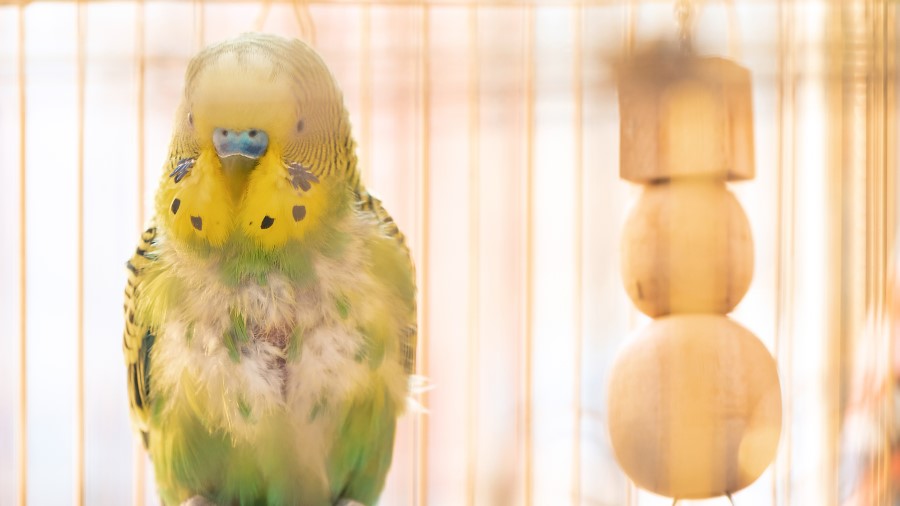
Entertaining Pet Birds
The kinds of activities a bird finds enjoyable varies between species, but one thing that remains consistent is the benefits of keeping your bird stimulated. Ensuring your pet bird is entertained is beneficial for many reasons. It contributes to their overall emotional wellbeing and temperament, it can help to alleviate boredom and as such, reduce the risk of self-harming behaviours. Some common incidents you may see in a bored or unhappy bird may include feather chewing, skin or hair plucking and aggression.
Most birds enjoy a range of toys, creative food dispensers, climbing apparatus and training or interaction with humans. A range of toys and spending time with your bird can ensure they remain happy and busy, making for a satisfied pet.
Healthcare for your Pet Bird
The amount of veterinary care or input your bird requires depends on a range of factors including their previous medical history, how many birds you are keeping and the conditions they are being kept in.
Birds typically benefit from regular deworming and sanitation and yearly health checks. Regular health checks are particularly important for larger species in solitary situations so that issues can be detected early and treated sooner.
It may be time to consult a vet if you notice changes in your pet bird including:
- Energy levels
- Eating patterns
- Drinking patterns
- Droppings
- Breathing
- Bodyweight
- Plumage
Or you notice any other visible symptoms.
If you bring your bird to the vet a small, clean transport cage is best to use. Fresh droppings should be left in this cage, and a sample of their regular diet should be brought to the vet with them, along with details about their living situation. All the information you can provide your vet about your bird’s daily life can have a significant impact in their ability to treat and diagnose your pet.
If you have questions about how to take care of your bird or want to book an appointment, get in touch with one of our friendly team members today.

 Greencross Vets
Greencross Vets 
